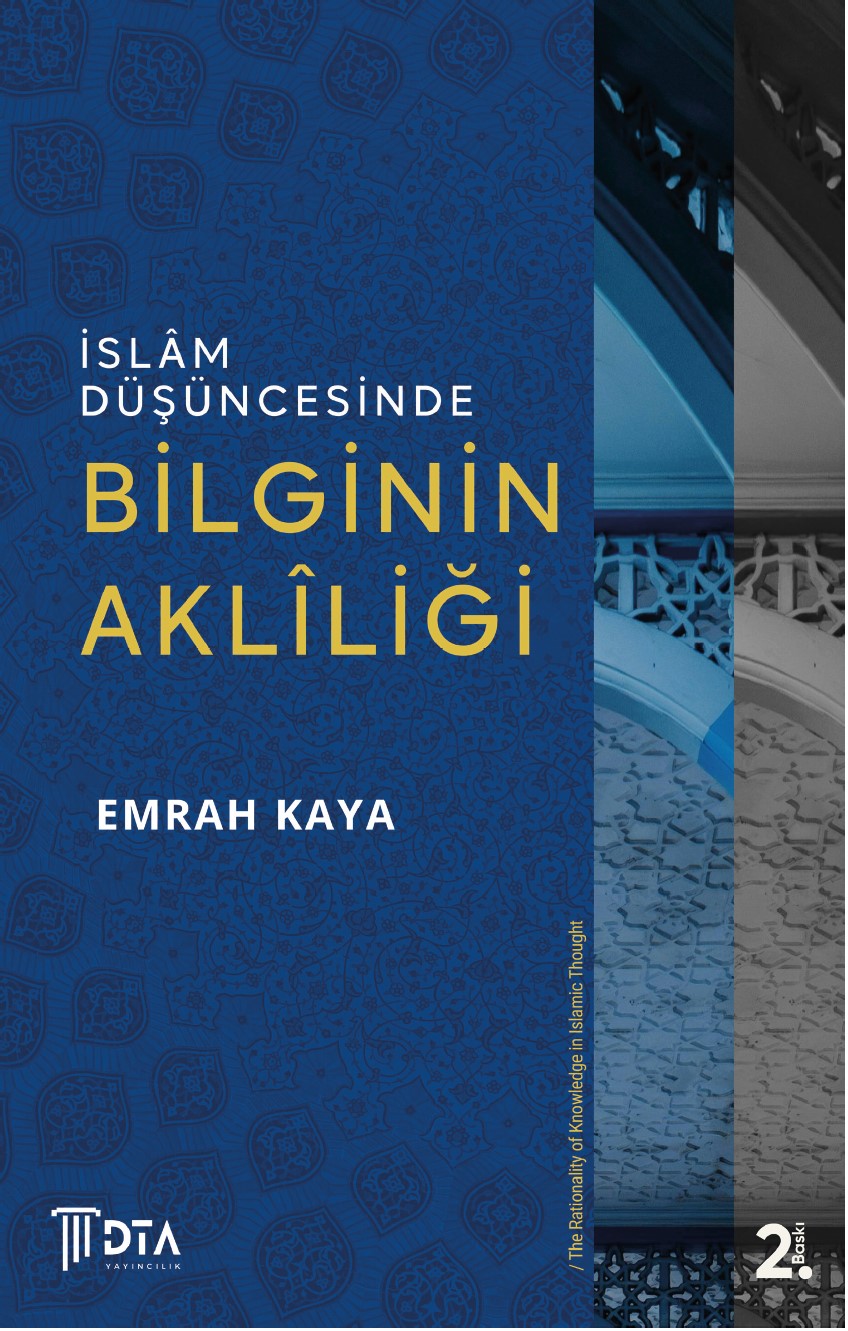
- Anasayfa
- Kategoriler
- Yazarlar
- Hizmetlerimiz
- Akademik Faaliyetler
- Hakkımızda
- İletişim
- Giriş Yap
- Sepet: (0 TL)

| Yazar: | Doç. Dr. Emrah Kaya |
| Eser Türü: | Basılı, Dijital |
| Yayıncı: | DTA Yayıncılık |
| Yayın Tarihi: | 22/09/2025 |
| Kategori: | Din Bilimleri |
| Sayfa Sayısı: | 220 |
| Dil: | Türkçe |
| Kapak: | Karton |
| Boyut: | 13,5 x 21 cm |
| ISBN: | 978-625-5959-47-8 |
| E-ISBN: | 978-625-5959-48-5 |
| DOI: |
|
Bu kitapta İslâm düşüncesinde bilgiyi aklî ve/veya mistik zeminlere oturtma yönündeki gayretleri İslâm düşüncesinin en etkili isimleri üzerinden ortaya koymaya çalışılmaktadır. Hem zengin dinî, kültürel ve düşünsel kaynaklardan beslenen hem de birçok farklı alt dallara ayrılmak suretiyle ekollerin oluşumuna imkân veren İslâm düşüncesini mutlak sınırlar içinde görmek ve bu konu hakkında son noktayı koyduğunu iddia etmek bu düşünce sisteminin büyüklüğünü idrak edememekten ileri gelir. Bununla beraber, bilginin aklîliği derken bu kitapta ne kastediliyor? Kitabın ilerleyen bölümleri bütünüyle yazarın çizdiği çerçeve içerisinde bir anlama sahip olacaktır. Zira aynı şeye farklı açıdan bakan kişilerin gördükleri şey aynı değildir. Akıl, en genel anlamıyla insanın idrak yetisi olarak alâmet-i fârikasıdır. Aklîlik; insanın, eldeki değişken verilerden değişmeyeni bulması, hissedilenden his ötesi idrake geçmesi, fizikten metafiziğe ulaşması için tüm sonuçları sebeplere “izah edilebilir" ve “tutarlı” bir şekilde bağlamasıdır. Bilginin aklîliği ise bilginin, beşerî çabayla tutarlılık ve izah edilebilirlik çerçevesinde üretilmesi veya elde edilmesidir. Akıl, pasif bir alıcı ve dönüştürücü değil, bununla beraber bilgi üretici ve kendisine verilmeyeni keşfedicidir. Ancak bu keşfin sonucu hem iç tutarlılığa sahip olmalı hem de muhakkak izah edilebilmelidir.
This book highlights the efforts to ground knowledge in rational and/or mystical foundations within Islamic thought, focusing on the most influential figures. Viewing Islamic thought, which is nourished by rich religious, cultural, and intellectual sources and which, by branching out into many different sub-fields, has enabled the formation of schools of thought, within absolute boundaries and claiming to have reached the final word on the subject, stems from a failure to grasp the magnitude of this system of thought. That said, what does this book mean by the rationality of knowledge? The book's subsequent sections will make sense entirely within the framework outlined by the author. This is because people looking at the same thing from different angles do not see the same thing. In its most general sense, reason is the distinguishing feature of human cognition. Rationality is the ability of humans to find the immutable among the variable data at hand, to move from the perceived to the beyond-perception, and to reach metaphysics from physics by linking all results to causes in an “explicable” and “consistent” manner. The rationality of knowledge is the production or acquisition of knowledge within the framework of consistency and explainability through human effort. Reason is not a passive receiver and transformer, but also a producer of knowledge and a discoverer of what is not given to it. However, this discovery's result must be internally consistent and explainable.
İslam Felsefesi, İslam Düşüncesi, Epistemoloji, Bilgi, Aklîlik
Islamic Philosophy, Islamic Thought, Epistemology, Knowledge, Rationality